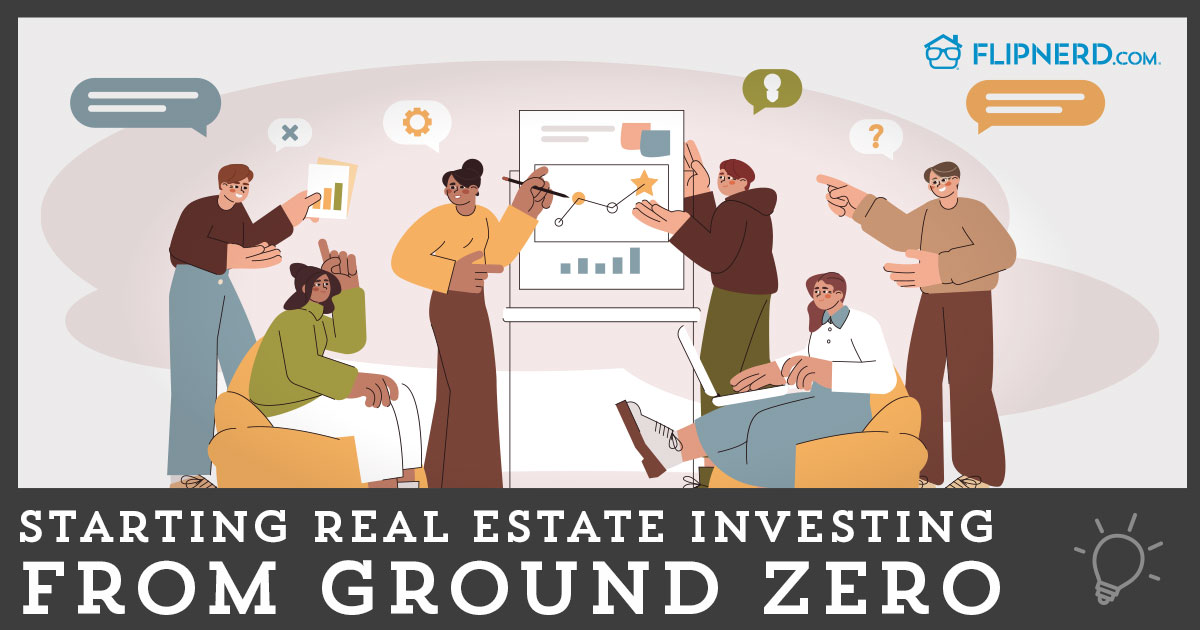Soon the Government will pass the baton to servicers. Making all Home Affordable (MHA) programs and Home Affordable Modification Program (HAMP) obsolete, these programs will now be used as the sherpa’s for all future dealings when it comes to loss mitigation.
“The foreclosure prevention programs established by Treasury, HUD and FHFA in response to the financial crisis have transformed the way in which the mortgage servicing industry has interacted with and assisted struggling homeowners,” says Mark McArdle, Deputy Assistant Secretary for Financial Stability at the U.S. Department of the Treasury. “While MHA and other crisis-era homeowner assistance programs are ending, their impact will endure. Servicers and investors will need to leverage new or existing loss mitigation programs, but they should build on the best practices and guiding principles that have led to positive outcomes for all parties.”
A look at how this type of economic model has the ability to create a mass sustainable change in consumer’s, users and borrower’s behaviors.
It’s about matching Haves with the Wants.
Using Community Co-Ops as central hubs.
Collective accountability
The providers in this type of economy are referred to as micro-entrepreneurs.
How we will use “Reputation Capital” and how it will transform how we think about Power, wealth, economy, markets and your personal identity in the 21st century.
How peer to peer will be the new default go to whenever there is a need for anything.
The power of open sourced technologies.
It’s about collaboration, new ways of sharing and new kinds of social participation. Bringing back the effective community participation that our society needs in order to thrive in this environment we live in today.
How this can decrease re-default rates by way of trust created between people via technology.
For example, default rates within on-line marketplace lending sites and peer to peer is very low compared to traditional lending institutions. This trust is more attainable for each party due to the technology in play, and how they look at each potential borrower. They look at your businesses and or personal data in real time and not just credit score to help underwrite and do background checks. You can follow transactional timelines, conversation logs and reviews. This is a very powerful trust builder because it’s the person seeking the trust coming to this conclusion about the Trust vs someone telling them that they are trustworthy and we should do business. People are able to collect data on an individual by looking at this past history thus creating a self-established ideal of what they are looking for hence “Collective Accountability is formed”
What’s happening,
I don’t want this to be a splashy philanthropic initiative piece or some kind of glossy social impact pitch but more of a thought provoking idea that may spark others to help this idea gain traction. Although still very rough around the edges I want you to see through the eyes of a child and try not to let all the constraints of too much knowledge hinder you when reading this. I firmly believe that this is a very good starting point to how we mitigate loss when it comes to someone’s shelter.
First let’s look at the genesis of this term “Sharing Economy” and what that means in today’s world. We started to smell hints of this in the early 2000’s when due to the great recession you started to notice new businesses and structures emerge.
With the successes of Companies like #Airbnb and #Uber this model of economy was threaded into the conversation.
These disruptors really paved the way, their theories and how they are operated really gave the creative minds of the world something new to gnaw on. This was fuel they needed in order to disrupt certain broken systems that exist in today’s business ecosystem.
SO…
I started to think about what it would look like if we applied this to the loss mitigation side of the mortgage industry. But specifically to the underserved, the low to middle income families the small balance mortgages and look at how these borrowers are being handled now vs how they would be handled if we applied a hybrid type of a “sharing Economy model”
So here are Some terms to be familiar with that help define this whole industry..
Unused Value– refers to the time that products, services and talents lay idle. A great example of this is a car and how it is unused 92% of the time. Why not share it? This is a huge wasted value of a resource. Companies are taking advantage of this “unused value” as an entry into developing niche market of car sharing, BMW is even taking advantage of this business model.
social media- an open sourced platform that allows the user to take advantage of an unlimited supply of social knowledge with ease and great UI (user Experience). and gives them an effective way to communicate and transact business. Without these types of platforms in place a Sharing Economy only exists in fiction.
information technology- storing, retrieving, manipulating and communicating information via technology at a very inexpensive price relative to your experience and output.
Reputation Capital- Defined as the sum value of your online and offline behaviors across communities and marketplaces. This should be a major player in the transformation with how we think about status, wealth, markets and personal identity.
Micro Companies- individual entrepreneurs that get together on a small scale, 1–10 people that are nimble and forward thinking.
Socially responsible- is an ethical framework and suggests that an entity, be it an organization or individual, has an obligation to act for the benefit of society at large.Social responsibility is a duty every individual has to perform so as to maintain a balance between the economy and the ecosystems.
Presence- Relating to the Virtual reality- Presence, a term derived from the shortening of the original “telepresence,” is a phenomenon enabling people to interact with and feel connected to the world outside their physical bodies via technology
What’s happening…
Loss of trust, systems that disable individuals instead of enable them to get back on their feet when going through a hardship. We have to remember that it is not us that needs to play god and tell someone what is and isn’t a hardship, as we are all different animals we all have different ideas of what defines a hardship. So to disqualify someone because their hardship wasn’t hard enough seems to be very unfair.
We have experienced borrowers that will go dark and stop communicating because of something as simple as an unknown number calling them. And once our trusted source calls them they pick up communicate and we end up coming to a resolve. These are very personal and intimate situations that are going on in a person’s life and we need to respect that and do what we can to help not intimidate and make feel low. We have personally used the systems in place now and they are wildly complicated thus intimidating. For example, HHF (hardest hit fund) is a federally funded program that helps individuals out by helping them catchup on their mortgage payments, a great program in theory however the process is extremely hard for anyone to work and eventually get help. Our first HHF we got funded for a borrower took about 1 year of hard work to get done. This doesn’t seem right. Why?
SO what have we been seeing and experiencing..
Fintech is way behind with regards to adapting to the current ecosystem. People loosing trust in the traditional ways and systems. They are starting to get frustrated. Due to overregulation companies have not been able to fund R&D because of all the money they are spending to keep themselves out of trouble. As a result, these ways and systems are stubbornly not going away and are changing at a snail’s pace. What we have seen is that people are starting to trust individuals and what they can do to help. Micro companies are nimble and with the power of outsourcing are able to adapt more swiftly to customers wants and needs while staying on the good side of regulation. Individuals and micro companies, where their accountability is based off of their online reputation and collective are able to really turn what was a horrible customer experience into a satisfying process. This in turn is creating a solid trustworthy base where a granite relationship can be built on.
These trustworthy individuals and micro companies are also fueled by #socially responsible behaviors and that what they are doing will have a meaningful impact and has some value. There has been a huge up-swing with this type of socially responsible thinking. This has been studied in human psychology as a huge motivating factor to get things done.
The seamless accessibility of these new technologies and qualifiers to anyone that wants to gain this knowledge, makes this possible in today’s world as these are some of the key driving factors that enable this theory to become a reality. We must establish trust in order to make this work and Rep Capital plays a huge role. Just because of its true nature “Rep Capital” is very difficult to manipulate thus allowing this to be a very granite qualifier for someone to rely on. Once you do something shady or manipulative to someone on the internet it’s tough to get that off your record. It’s a true collective of human actions that is real and has a major impact now and will even play more of a role as time continues to move on.
First let’s address what “Unused Value” we are speaking of when it comes to this idea. The answer is Peoples time.
Just a quick thought to download, there are 10,000 baby boomers a day retiring, for the ones that still want to do something besides be golf course rangers this may be an opportunity. This is a great generation of people that could be used if properly incentivized. If you really think about it many of us have unused capacity (time) in our days that we can utilize to take care of simple tasks that others need done and or organizations need done; i.e. Task rabbits whole business model revolves around this. Let’s just say in a fantasy land that someone out their wants to reach out and help a struggling homeowner and possibly help save their home. How would they do this in today’s environment? We have experienced that if you have real people reach out to help other real people the response is wonderful. And when there is that sense of value and meaning attached to what they are doing it really starts to result in positive outcomes.
With the help of social media, tech and information technology we can create a system made up of simple tasks that anyone can accomplish. We will reward the process of reaching out and helping more than incentivizing the end result. This will enable us to tap into unused talents and time that people have.
What it would look like if we had this already implemented:
I liken this to the technology that already exists that connects local sellers of things to local buyers of things. i.e. LETGO, this is an app that you download on your phone and it links you to people in your area that are buying and or selling things. It’s a very simple approach to linking people together that want to be linked. Once in communication with these people you are able to communicate in a very non intimidating process through the apps conduit. I am able to clearly see this person’s reputation on the site and can ask for other types of online transactions that they have accomplished in order to form this trust. If for some reason there is negative feedback, I can clearly research this and or reach out to the person for further clarification. This type of Technology has proven to establish trust amongst people. We have experienced first-hand that once you re-establish trust solutions happen.
Now take that same idea and apply it to people and families that are struggling with mortgage payments. There is a Platform that anyone with the proper qualifications can access, on this platform you will see opportunities in your defined area to make some money, do something good and help by assisting a struggling homeowner. On this platform a borrower will be able to anonymously post certain answers to questions like: Are you going through a hardship or do you foresee one coming soon? Do you want to stay in your home? The potential “savior” will be able to reach out and communicate. Further down the linear progression you can purchase this non performing mortgage note through a secure platform then giving this savior the opportunity to help this struggling borrower out. From market research based off of 100 + small balance Non performing loans we have seen that if you apply a granular more intimate approach the borrowers will be more receptive compared to traditional measures used. These saviors will be much nimbler than large institutions when it comes to helping these people out. I say nimble in decision making but not above regulation, with the proper technology and systems in place all regulatory guidelines can and must be met. Anything dealing with sensitive regulatory concern can be outsourced to the larger companies that specialize in that exact discipline and rely on technology in order to free the minds, decrease liability and instantly increase the micro-entrepreneurs risk tolerance when taking something like this on.
Now I have a few ways that I am battling with on how this story can go at this point,…
Scenario 1:
I am a retired individual, but I need to make a little money on the side so every morning I log on to my platform and look for people, neighborhoods, communities and see if there is someone that anonymously posted a help wanted add on the platform and gave me a quick breakdown of what was going on. This add could read something like: “hard working individual that got in over his head and now lost his job and has a family, looking for someone to come and help me save my home, I am currently working and need someone to reach out and give me some options for my house payment. “If that borrower gets a response from someone saying that they will help them, that borrower is then able to connect the interested savior with the bank (institution) at the click of a button giving that institution some really good lead time into the future. The bank or institution that is now informed of a potential problem can sell this problem asset and would have posted the information regarding this note on the secure platform and the potential savior would be given all the tools needed in order to purchase this note. Before a note was ever put onto this site it has been fully audited to make sure everything is in place and all the regulatory complianceis addressed andcompleted to the satisfaction of the regulators.
The secret here is to give the borrower a platform, a voice and the power to reach out for help anonymously, an ability to document their hardship and be heard with the hopes there is someone out there that is looking to help. This will give them the chance to be accountable for this situation they are involved in and when they are able to help in the resolve it becomes a solid re-performer with a sense of purpose and conscious. This information is also very valuable to big institutions that need to know if there is a potential future problem with this loan. Once the symptoms of non-payment occur its already too late.
Now I know what some are thinking, well this just makes it easier for people now to game the system right? With the idea of collective accountability those who play this game won’t last long in a properly structured ecosystem.
Where we have started: Underserved market, Low to middle income families need the most help.
Research and trials done.
100 small balance nationwide NPL sample size.
For the last four years we have been buying these types of notes and building then applying a what I call our Frankenstein system. We have also been developing for the last 2 years the platform needed to assist in this.
It’s a system that is continuously being improved upon, built on and it has proven to be a very effective way of handling delinquent borrowers and provide a great experience and re-establish trust resulting in much more responsible behavior with the money they owe us for their home. Less re-defaults by simply acting like a human being to them with the help of technology.
I thought this would be a thought provoking insight and I would love people to comment on this, tear it apart or bring some constructive criticism so we can come up with a good solution for the millions of Americans that will continue to encounter hardships then have to deal with outdated systems that belittle instead of empower and result in people potentially losing their families home while they are trying to get back on their feet.
We are already doing this on a very small scale and just need some more support in order to make a change.
Before I go one last thought about the future. I just had my first Virtual Reality experience so now I needed to take it one step further. Into the land of VR (virtual Reality). When one steps into a VR world one feels something called “presence”. This presence invokes the same kind of feeling as if we are there. It has an ability to invoke emotion, empathy, happiness and sadness. I was listening to a story about a film that was shot in this VR format about a little girl in a refugee camp, this film was shown to some of the most powerful people in the world at the world economic forum in Davos and some of them had tears running down their face. Something really changes within someone when put into this virtual world. Now let’s fast forward 20–30 years when the VR world is a common place in everyone’s world, how will this change outreach to those in need, if you could be in the same room as them when they are telling you their hardship story but you are actually across the world.
Let’s chew on that.
Written by: Tj Osterman









